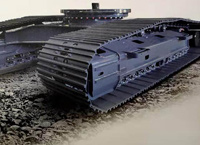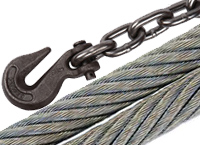| ravansanaat |
| Iran |
| 021-55430262 |
Bolts Metric
Metric stud bolts are produced from low-carbon steel Grade 4.6 to alloy steel Grade 12.9 per ISO 898-1. Common nominal diameters range from M1.0 to M64 with standard ISO 261 or fine ISO 965 thread pitch. Their tensile strength varies between 400 and 1220 MPa. Standard production lengths range from 6 mm to 3 meters in linear rods. Thread diameter tolerance falls within accuracy classes 6g commercial or 4h precision. The effective thread depth is typically 0.6 to 0.7 times the bolts nominal diameter. The metric thread angle is precisely 60 degrees. Common coatings include electro-galvanizing with a 5-15 micron thickness and yellow passivation. This coating provides corrosion resistance for up to 120 hours in salt spray tests.
The bolt structure is a uniform, fully threaded cylinder without a head. Its ends are typically finished flat or rounded ISO 4753. High-quality grade studs have axial straightness with less than 1 mm deviation per meter. The yield strength of a Grade 8.8 bolt is at least 640 MPa. These bolts exhibit ductility with up to 12% elongation before fracture. The allowable torsional torque for an M10 Grade 10.9 bolt is approximately 50 Nm. The standard operational temperature range is -50 to +150°C. Metric studs are commonly used in industry for cutting, threading
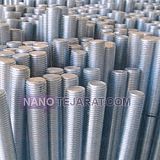
 | |
| ravansanaat | 021-55430262 |
| power-belt |
| Iran |
| 021-22087856 |
Metric Timing Belt
The metric timing belt is manufactured from neoprene rubber or polyurethane reinforced with fiberglass or steel cords to ensure precise and slip-free power transmission. The tooth pitch varies from 2 millimeters to 20 millimeters depending on the standard, while tooth height ranges between 0.8 and 5 millimeters. The tensile strength of these belts is typically in the range of 500 to 3000 newtons per centimeter, enabling use in heavy-duty industrial systems. The operating temperature range of the metric timing belt is between -30 and 100 degrees Celsius, with short-term resistance up to 120 degrees Celsius. High wear resistance, along with oil and moisture tolerance, are also key features of this product.
Other technical specifications include high accuracy in tooth alignment and long-term dimensional stability. The belt width is produced from 6 to 150 millimeters depending on application, and standard rolls are offered in lengths of 50 or 100 meters. The minimum bending radius usually ranges between 20 and 80 millimeters, allowing use with small pulleys. The surface hardness is typically between 80 and 92 Shore A, providing strong resistance against deformation. These belts are designed according to international standards ISO 5296 and DIN 7721, and are widely applied in autom
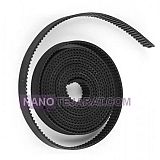
 | |
| power-belt | 021-22087856 |
| ravansanaat |
| Iran |
| 021-55430262 |
boltes metric
A fully threaded screw metric has threads running from under the head to the tip. These screws are manufactured per standards ISO 4014 DIN 931 and ISO 4017 DIN 933. Common diameters range from M1.6 to M64 with standard or fine pitch. Key strength classes are 4.8, 8.8, 10.9, and 12.9. Their lengths typically vary from 6 mm to 500 mm. Head types include hex, socket, button, and slotted. Materials are carbon steel, stainless steel A2/A4, or copper-beryllium alloys. Fully threaded screws are used for general connections requiring free-spinning nuts.
A stud bolt double-ended is a threaded rod with threads on both ends and an unthreaded shank in the middle. They are produced per ISO 4014 tap end stud and ASTM A193 for high-temperature applications. Threads can be concentric or with different pitches. Overall length typically ranges from 25 mm to 300 mm. Common nominal diameters are between M8 and M36. The strength class is often 8.8 or higher. These are primarily used in flange connections, hydraulic systems, and machine panels. Their installation requires two nuts.

 | |
| ravansanaat | 021-55430262 |
| ajax-hex-bolt |
| Iran |
| 021-55429480 |
Metric thread stud bolt
Metric-thread stud bolts are typically manufactured from carbon or alloy steel with a tensile strength ranging from 70 to 120 ksi. Their diameters range between 6 to 50 millimeters and are available in various lengths. The threads are produced according to ISO 261 or DIN 13 standards with a precision class of 6g or 7g. The surface hardness after heat treatment ranges from 200 to 280 Brinell, ensuring high mechanical strength. This type of stud bolt is widely used in oil, gas, and petrochemical industries for precise and durable connections.
Due to the accurate thread geometry and high-quality raw materials, metric-thread stud bolts can withstand high pressure and industrial vibrations. The manufacturing process includes heat treatment, grinding, and strict dimensional control. Mechanical tests such as tensile strength, hardness, and non-destructive testing are conducted to ensure final quality. These stud bolts perform optimally in corrosive environments and high temperatures, offering long service life and reliability.
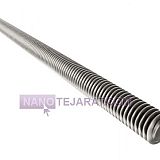
 | |
| ajax-hex-bolt | 021-55429480 |
| Pardis-tools |
| Iran |
| 021-٦٦٧١١٦٣٢ |
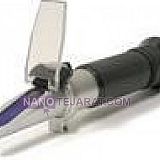
 | |
| Pardis-tools | 021-٦٦٧١١٦٣٢ |
| midia-idea-and-processing-co |
| Iran |
| 026-34203466 |

 | |
| midia-idea-and-processing-co | 026-34203466 |
| Pardis-tools |
| Iran |
| 021-٦٦٧١١٦٣٢ |

 | |
| Pardis-tools | 021-٦٦٧١١٦٣٢ |
| Pardis-tools |
| Iran |
| 021-٦٦٧١١٦٣٢ |

 | |
| Pardis-tools | 021-٦٦٧١١٦٣٢ |




